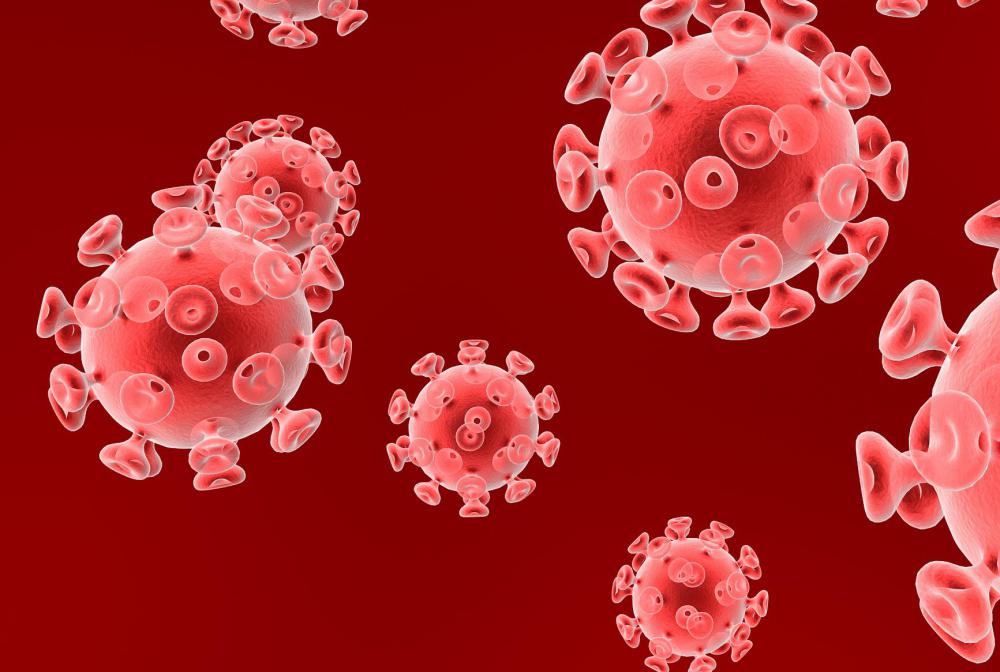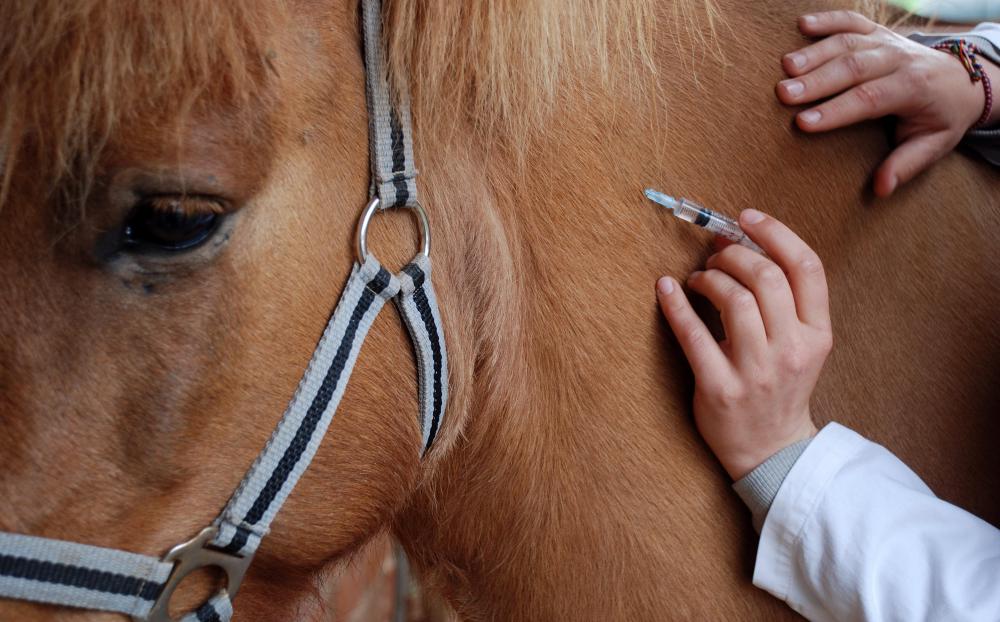At AllThingsNature, we're committed to delivering accurate, trustworthy information. Our expert-authored content is rigorously fact-checked and sourced from credible authorities. Discover how we uphold the highest standards in providing you with reliable knowledge.
What Are the Signs of West Nile Virus in Horses?
West Nile Virus is a disease that affects the central nervous system. Although the disease remained primarily in Africa, southern Europe, and Asia, the infection eventually began to appear in America after 1999 and quickly became a health concern in several areas. While it is potentially dangerous in several animals, horses seem to be most affected. It generally spreads when a mosquito infected with the virus bites the horse. The most common signs of West Nile Virus in horses include stumbling, weak muscles, fever, paralysis and seizures among others.
Signs of West Nile virus in horses may never show or may come slowly over time, and as with many other illnesses symptoms of West Nile Virus may vary in severity. Typical signs are weak limbs, stumbling, general clumsiness, fatigue and listlessness. Other common symptoms are loss of appetite, inability or difficulty swallowing, walking in circles, and hyperexictability. More serious signs generally involve facial paralysis or paralysis of the hind limbs, inability to get up, fever that may cause blindness, trembling, seizures and coma. If several of these symptoms occur together, it is recommended that veterinary advice be sought out.

Many signs of West Nile Virus in horses are also common in several other health problems, such s botulism, rabies or other mosquito-related diseases. It is important to seek the advice of a trained veterinarian to determine if these symptoms are in fact caused by West Nile Virus. While there is no official treatment for the virus, the veterinarian may assist in deciding the best option for the horse’s health.

Typically, if there is a case of West Nile Virus in horses, supplementary treatment to help reduce symptoms is undertaken by both the owner of the horse and a veterinarian as the horse overcomes the illness. In most cases, the horse does not need to be put down. Some horses may even build antibodies against the virus as they heal, and they even become immune to further infections.

As of 2011, there are four different vaccines that may be used to prevent West Nile Virus in horses. After the initial batch of vaccinations, an annual supplementary booster is recommended. Although the West Nile Virus vaccination and booster is enough for most horses, those who are under more stress, such as racing and show horses, should have two annual booster vaccinations. The recommended time for this treatment is usually in April and July.
Frequently Asked Questions
What are the initial signs of West Nile Virus in horses?

Early signs of West Nile Virus in horses include flu-like symptoms such as fever and lethargy. Owners may also notice a decrease in appetite and changes in behavior, such as depression or anxiety. These symptoms can be subtle, so it's important to monitor horses closely during peak mosquito seasons.
How does West Nile Virus affect a horse's neurological system?

West Nile Virus can cause severe neurological effects in horses, including ataxia (lack of coordination), muscle twitching, and weakness. In more serious cases, horses may experience seizures, paralysis, and even coma. According to the American Association of Equine Practitioners, approximately 33% of horses infected with West Nile Virus that exhibit clinical signs will die or need to be euthanized.
Can West Nile Virus be treated in horses?
There is no specific antiviral treatment for West Nile Virus in horses. However, supportive care is crucial and can include anti-inflammatory medications, intravenous fluids, and rest. Early detection and veterinary intervention can improve the chances of recovery. Vaccination is the most effective way to prevent the disease.
What is the mortality rate for horses infected with West Nile Virus?
The mortality rate for horses that show clinical signs of West Nile Virus infection is significant. According to the United States Department of Agriculture, approximately 30-40% of horses that develop neurological signs from the virus will die. This underscores the importance of preventive measures such as vaccination and mosquito control.
How can I prevent my horse from contracting West Nile Virus?
Preventing West Nile Virus in horses involves reducing exposure to mosquitoes and vaccination. Use mosquito repellents approved for equine use, eliminate standing water where mosquitoes breed, and keep horses indoors during peak mosquito activity times. Most importantly, ensure your horse is up-to-date on West Nile Virus vaccinations as recommended by your veterinarian.
Is West Nile Virus contagious between horses or from horses to humans?
West Nile Virus is not directly contagious between horses, nor can it be transmitted from horses to humans. The virus is primarily spread by infected mosquitoes. Therefore, controlling mosquito populations and preventing bites are key to preventing the spread of the virus to both horses and humans.
AS FEATURED ON:
AS FEATURED ON:















Discuss this Article
Post your comments